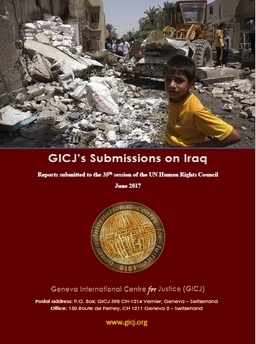With one of the highest rates of executions in the world, Iraq has a well documented and prolific history of human rights abuses. Torture and ill-treatment are widespread in prisons, arbitrary arrests and detention common, and there is a critically flawed criminal justice system that lacks an independent judiciary. In such a damning situation, ordinary Iraqis have been prevented from speaking out, and have no ability to live a life free from violence or fear.
On 15th May 2017, GICJ submitted four written statements addressing these serious issues, and the situation in Iraq, to the 35th Session of the UN Human Rights Council. The first statement summarized the main rights being violated in Iraq, and the latter statements looked more closely at three of those rights; the right to life - abused by state executions, the right to expression - abused by state repression, and the right to a fair trial - abused by state corruption. Finally, these statements made recommendations as to the actions which Iraq and the international community must take to defend those who, today, cannot defend themselves.
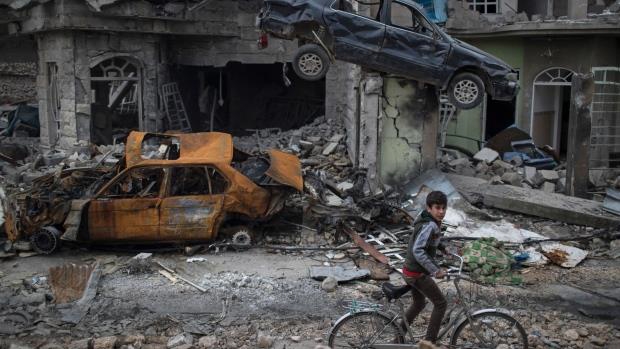
Iraq: Human Rights Violations
Successive Iraqi governments have utilized the rise of ISIS to authorize high execution rates, arbitrary arrests and to justify the detention of peaceful demonstrators – all under the guise of “fighting terrorism.” This has given rise to some of the most prolific violations of international human rights law and international humanitarian law of this century.
Enforced Disappearances
Despite government denials, the number of enforced disappearances in Iraq is not diminishing. Credible information has proved there are over 420 secret detention facilities in Iraq, and between 2-5 June 2016, at least 643 men and boys, disappeared from Saqlawiya, Iraq, in the aftermath of the ‘liberation campaign’ allegedly intended to retake the city of Fallujah from ISIS. As of May 2017, the government has still not released any further information about the status of the investigation into these missing persons, who is conducting it, or any further steps taken. As a result, it is clear there must be an urgent and proper investigation into every person reported missing in Iraq.
Torture
Since 2014, Iraq has stepped up its use of torture, to “combat terrorism.” This has empowered state authorities (militia, police units, security forces, intelligence services and the army) to conduct torture practices and other ill-treatment in detention centers, prisons, and even on the streets. In prisons, interrogators use torture to extract information from detainees and obtain “confessions.” These detainees are tortured until they confess, or until they agree sign a statement which they are not allowed to read. These coerced statements or confessions continue to be relied upon by Iraqi Courts to convict defendants on trial for serious charges, where often, the result is the death sentence.
The Death Penalty
When applying the death penalty, the Iraqi government does not respect due process and fair trial standards. Often, detainees are tortured, forced to confess to crimes or terrorist acts, and shortly thereafter sentenced to death. Moreover, following ISIS’s invasion of Iraq in 2014, “countering terrorism” is increasingly being used to justify rising execution rates and the use of the 2005 Anti-Terrorism law, which mandates the death penalty for vague and not necessarily lethal acts, including ‘threats which aim to bring fear among people.’ In this context, an alarming amount of state executions continue to happen. On Monday 23 January 2017, the Iraqi judicial authorities executed 31 people for terrorism in one day. As in previous cases, no names of those executed were disclosed, and the government publicized no details of the trial.
Freedom of Assembly & Expression
Iraqis who openly criticize officials and their corruption face threats, arbitrary arrest, beatings, harassment and prosecution. Demonstrations are always stormed by the Iraqi police and army, who intimidate protestors with threats of violence – that are often acted upon. In one incident, on 11th February 2017, a protest was held in Baghdad’s Green Zone to bring attention to government failings. It ended with Iraqi security forces firing tear gas and rubber-coated bullets at thousands of demonstrators – wounding at least 320 people, and killing seven.
Economic, Cultural & Social Rights
The inadequate provision of basic services cannot be blamed on a lack of funding. Rather, billions of dollars have either been stolen by government officials, or wasted on totally fictitious contracts and projects. This vast corruption has destroyed any trust in public institutions and robbed the country of proper development. As it stands, 60% of Iraqi households suffer from substandard living conditions. There is no proper water source, which facilitates waterborne disease and the spread of illness, and access to healthcare has become impossible for most of the population, reflected in the inadequate number of medical professionals, insufficient equipment, and scant pharmaceutical supplies. Further to this, electricity provision is on the decline and education is plagued by neglect and mismanagement, demonstrated by the declining literacy rate.
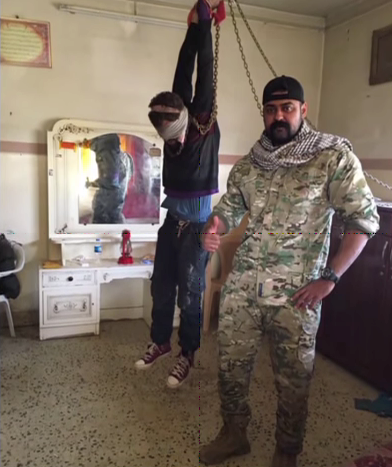 Climate of Impunity
Climate of Impunity
Since the invasion and occupation of Iraq, there has been a total destruction of the notion of justice. The rule of law has now been replaced by a state of anarchy and sectarian violence. This has allowed enforced disappearances, arbitrary arrests, torture and extrajudicial executions to become a part of the everyday lives of ordinary Iraqis – with those brave enough to protest silenced either by force or fear. In these circumstances, GICJ calls upon the UN to immediately enact steps to launch an independent and impartial inquiry into the gross human rights violations in Iraq.
Iraq: A Judiciary without Justice
Iraq’s criminal justice system is plagued with opacity and arbitrariness, with fair trials now almost impossible. Many civilians find themselves arrested, arbitrarily detained, denied legal representation, and subjected to an unfair trial – if they receive a trial at all. This is allowing innocent Iraqis to be punished and killed, while protecting guilty government officials, and punishing and destroying anyone who attempts to uphold the law and pursue justice.
Iraq’s Corruption
The judicial system has become highly vulnerable to political pressure. Many judges are now controlled by the government, either by fear, by threats, or by bribes. This has rendered a true democracy impossible, as it has fostered a situation where biased judges have allowed government leaders and officials to become above the law. This exploitation of the judiciary has resulted in the right to a fair trial being gravely violated.
The Right to a Fair Trial
The government of Iraq does not respect due process and fair trial standards. Iraqis are routinely being detained, convicted on inappropriate evidence, and sentenced to death shorty after being arrested. Individuals who are charged with terrorism charges are held in the worst conditions imaginable, and deprived of the right to an effective defense. At trial, judges use evidence that is gained from secret informants to pursue criminal prosecutions, or confessions made by the detainee during torture, when they have been forced to confess to crimes or terrorist acts. This allows detainees to be charged with crimes, often with terrorism, without any actual evidence. This has created a weak judicial process that is contrary to international law, which requires that due process is respected in relation to arrest, charge, detention, and trial of all individuals.
The Death Penalty
When applying the death penalty, Iraq does not comply with the fair trial standards required by international human rights law. This includes the rights of the defendant to a proper lawyer, to be presumed innocent until proven guilty, and not to be compelled or forced to confess guilt. Further to this, when Iraqi citizens are executed by the state, the Justice Ministry releases little or no evidence as to their names, their convictions, what they were convicted of, or whether they had a trial at all.
GICJ is dismayed by the fact that, in the past year, hundreds of civilians have been subjected to the death penalty in this way. On 13th July 2016, the Iraqi President announced he had ratified a number of new death sentences, without providing the names, or number of people concerned, nor any information or evidence regarding the alleged crimes. Just the next month, on 21st August 2016, the state executed 36 persons in one single day for their alleged role in a 2014 terrorist attack. These men, whose “confessions” were extracted under serious allegations of torture, were convicted following deeply flawed and speedy trial. Less than six months later, another trial on 23 January 2017 saw another 31 men executed for the committing the exact same crime.
Unfair trials, torture, and mass executions can never be considered justice. With so many lives at risk, it is urgent that the international community puts pressure on Iraq to abide by the human rights standards it has pledged to, including the right to a fair trial, and the right to life – which the next section will address in greater detail.
Iraq: State Executions
Iraq’s Culture of Fear
The Iraqi government uses the death penalty and extrajudicial executions as tools of political repression, to eliminate political opponents, and to maintain a reign of terror over the Iraqi population at large. These arbitrary and widespread state executions constitute an integral part of the systematic repression felt in Iraq, which the government has used to sustain its rule.
The “Terrorism” Pretext
Since the adoption of the Anti-Terrorism Law No.13 of 2005, the majority of state executions have been justified on the pretext of “fighting terrorism”. This legislation legalizes capital punishment for anyone who commits a terrorist act, or is accused by the government of financing, provoking, planning, or enabling such acts. Under this law, a person can be sentenced to death on any one of 48 terrorism charges, giving Iraqi officials broad justifications for implementing the death penalty.
State Executions
Iraq has a weak judicial system, plagued by corruption, which puts the lives of many innocent people under threat. In 2016, Iraqi courts handed down 92 death sentences in just six weeks. These trials were grossly unjust, and failed to comply with international fair trial standards, with most defendants claiming to have been tortured into confessing the crimes. This pattern continued in January 2017, when 31 men were executed in one day. Their “confessions” were extracted under serious allegations of torture, following a speedy and deeply flawed trial. This made it the second time in six months the Iraqi government had carried out a mass execution on the basis of terrorism, after an unfair trial.
Secret Executions
While state executions in Iraq have attracted widespread attention, many of its executions are not publicly known. In thousands of cases, Iraqi security forces arrest and detain individuals without giving them or their families any information about the arrests, where the detainee is being held, or on their physical or mental condition. These detainees are then kept in secret prisons, and as their arrest and detention is not publicly known, they are highly vulnerable to abuse by the security forces, who deny them of any right to justice or accountability. Most often, these detainees are executed in secret, and their bodies are found days, weeks, or even months later, with signs of obvious torture and execution. This practice of ‘secret execution’ vastly increases the number of deaths caused by capital punishment.
This alarming situation shows that the calls for Iraq to stop conducting summary executions, and respect the right to life, have been flatly ignored. As a result, GICJ urges the international community to take action to ensure that Iraq upholds the human rights standards it has pledged to – ending the use of state executions which are so plagued with arbitrariness, prejudice, and error.
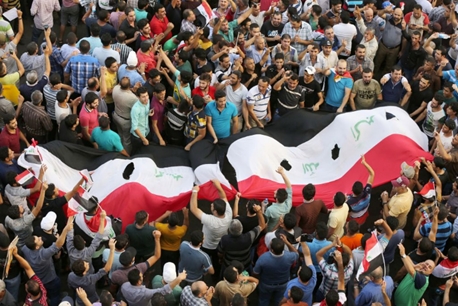
Iraq: A Silenced Nation
Iraq has been a party to the ICCPR since 1971, which provides for freedom of expression and peaceful assembly. But 46 years later, these rights remain seriously threatened, and Iraqis who publicly express their views do so at great peril.
Restriction of the Right to Assembly
The Iraqi authorities continue to block and disrupt peaceful demonstrations, which civilians use to protest against corruption and to demand greater civil and political rights. The Iraqi security forces use violence against protesters – often resulting in grave consequences. In one demonstration, in Baghdad’s Green Zone on 20th May 2016, government security forces used live ammunition, rubber bullets, and gas canisters against the demonstrators for two hours – injuring over 200 people and killing four protestors. In another protest in Baghdad, on 11th February 2017, Iraqi security forces fired tear gas and rubber-coated bullets at thousands of demonstrators – wounding at least 320 people and killing seven.
In addition to using violence to deter demonstrators, the Iraqi government has constantly referred to the peaceful protestors as “terrorists”. By alleging peaceful protestors are terrorists, governmental authorities have been provided with an excuse to target, attack and arbitrarily arrest, detain and execute innocent civilians who profess any kind of anti-government rhetoric. These actions of the Iraqi government, and its security forces, show a clear failure to abide by Article 38 of Iraq’s constitution, which guarantees the right to “freedom of assembly and peaceful demonstration.”
Prohibition of Free Press
There are few truly independent media outlets in Iraq, with most controlled by militias, political parties, or the state. Iraqi journalists who openly criticize officials and their corruption face threats, arbitrary arrest, beatings, harassment and prosecution. While many cases do not come to light, on 24 August 2015, eight cases of assault, expulsion, threats and incitement to murder were registered by the Iraqi Observatory for Press Freedoms against journalists covering anti-governmental demonstrations in Basra, Samawa, Baghdad and Diyala.
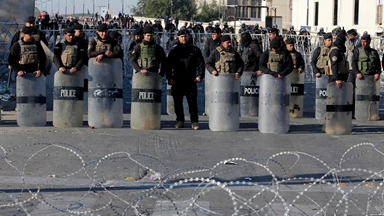 In addition to violence, threatened or real, the authorities continue to limit the freedom of the press in a number of other ways. In June 2015, Ala’ Rasul Muhi al-Din, the inspector-general of the Electricity Ministry, was awarded 3 million Iraqi dinars ($2,696) for ‘defamation’ after journalist Ibrahim Zaidan questioned the integrity of the inspectorate. Media restrictions also extend to television, and in March 2016, al-Baghdadia TV had its operating license removed by the Iraqi Communications and Media Commission, as did Al Jazeera in April 2016, allegedly because the channel contained ‘media rhetoric that incites sectarianism and violence.’
In addition to violence, threatened or real, the authorities continue to limit the freedom of the press in a number of other ways. In June 2015, Ala’ Rasul Muhi al-Din, the inspector-general of the Electricity Ministry, was awarded 3 million Iraqi dinars ($2,696) for ‘defamation’ after journalist Ibrahim Zaidan questioned the integrity of the inspectorate. Media restrictions also extend to television, and in March 2016, al-Baghdadia TV had its operating license removed by the Iraqi Communications and Media Commission, as did Al Jazeera in April 2016, allegedly because the channel contained ‘media rhetoric that incites sectarianism and violence.’
In 2017, Iraq continues to silence its people. Therefore, while the Iraqi Constitution stresses the right to freedom of expression, in reality, the detention, prosecution, and violence against peaceful protestors and independent journalists shows that this right is nothing but non-existent.
Conclusions and Recommendations
In light of the heinous human rights violations endured by the Iraqi civilians, the corruption that plagues the judiciary system and the climate of impunity and fear that scourges the country, all signatory organizations addressed several recommendations to the United Nations and to the Human Rights Council.
- The UN Human Rights Council should appoint a Special Rapporteur for the human rights situation in Iraq.
- The creation of an independent international commission and dispatch to fully investigate all of the human rights violations committed in Iraq since 2003.
- Relevant UN bodies open an investigation into the allegations that the Iraqi government and its forces have abused the right to freedom of expression and opinion, and the right to freedom of assembly.
- The international community should do all in its power to pressure the Iraqi government to halt executions and stop any future use of the death penalty.
- The international community undertakes all measures to ensure that Iraq protects and guarantees the right of individuals to demonstrate peacefully, and stops the targeting of human rights defenders, peaceful activists and independent journalists.
- Take all measures to amend the flawed justice system in Iraq by ending arbitrary arrests, detention, unfair trials and the extrajudicial imposition of the death sentence.
- Establish an independent oversight body to investigate allegations of corruption, abuse of authority, or breach of professional standards by the judiciary.
- There should be a country visit to Iraq from the Special Rapporteur on the promotion and protection of the right to freedom of opinion and expression, the Special Rapporteur on extrajudicial, summary or arbitrary executions, the Special Rapporteur on torture and the Special Rapporteur on the independence of judges and lawyers.
- The international community undertakes all measures to ensure that Iraq abides by its international obligations and ends the its human rights abuses once and for all.
النص بالعربية: هنا
|
|
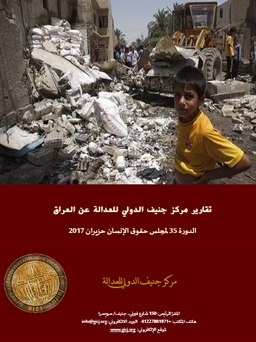 |
|
|
Read online or download the full report in English. |
قراءة على الانترنت أو تحميل التقرير الكامل. |
Links to GICJ articles on Iraq:




